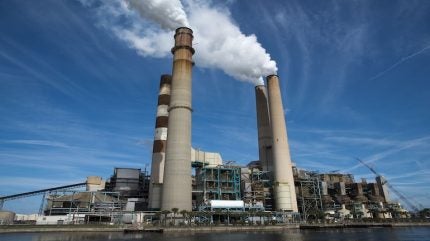
Scaled up conversion of carbon emissions
The DOE’s Office of Fossil Energy and Carbon Management (FECM) today announced up to $100 million in federal funding for large-scale conversion of carbon emissions captured from industrial operations and power plants into environmentally responsible and economically valuable products. Provided by the Bipartisan Infrastructure Law, the funding will advance the pilot scale testing of carbon conversion technologies with high technology readiness levels (TRLs) capable of achieving significant carbon mitigation via biological, catalytic, or mineralisation pathways.
Marketing of specific CO2 conversion schemes
The DOE’s Office of Fossil Energy and Carbon Management (FECM) has announced $13.7 million in federal funding to aid the marketing of four projects that will advance large-scale conversion of carbon dioxide into environmentally and economically valuable products. With funding provided by the Bipartisan Infrastructure Law, projects will help develop conversion technologies that feasibly produce crucial fuels, building materials, and other carbon-based products from captured carbon emissions.
The four companies, Dioxide Materials, Terraforma Carbon, Thiozen Inc and Twelve Benefit Corp respectively, are involved in:
- Technology for the production of low-greenhouse gas ethanol and mevalonic acid via a combination of electrolysis and bioprocessing;
- Carbon capture and conversion to methanol using molten salt-based capture technology;
- Hydrogen sulphide reforming technology to produce low-cost and low-emissions methanol;
- Production of low-carbon chemicals and syngas through rapid research, development, and deployment of CO2 electrolysers.
Clean hydrogen hubs
The US OCED (Office of Clean Energy Demonstrations) has awarded two regional clean hydrogen hubs. The first is to the Heartland Hydrogen Hub, led by the University of North Dakota Energy & Environmental Research Centre (EERC), which benefits by $20 million (of the total federal cost share of up to $925 million) to begin Phase 1 activities. With proposed sites across the Heartland — a region known for agricultural production, mineral mining, and energy production — the Hub plans to leverage new and existing energy resources and infrastructure to produce commercial-scale quantities of clean hydrogen that would be used for American-made, low-carbon nitrogen fertilizer. This would increase supply in the region, lower costs for farmers, and could reduce carbon dioxide emissions by 525 thousand metric tons per year.
And OCED has awarded the Mid-Atlantic Hydrogen Hub, led by Mid-Atlantic Clean Hydrogen Hub Inc (MACH2), with $18.8 million (of the total federal cost share of up to $750 million) to begin Phase 1 activities. The Hub plans to develop hydrogen production facilities using both established and innovative electrolyser technologies, which could help reduce costs and drive further technology adoption. The clean hydrogen produced by the Hub would be used in industrial applications – such as power generation and replacement fuel for process heaters – and heavy-duty transportation, with several refuelling stations planned. This would contribute to the reduction of carbon emissions by approximately 1 million metric tons per year. Phase 1 includes initial planning, design, and community and labour engagement activities.






